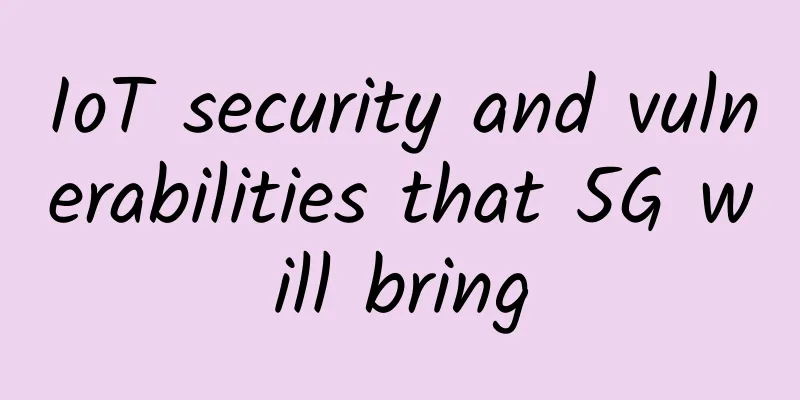Is the neighbor Wang using the internet for free? This is how you should punish him on the spot

|
Have you ever found yourself always experiencing slowdowns when surfing the Internet at home? Usually when this happens, we start with the signal problem and always think that replacing a wireless router will solve the problem. In fact, we usually ignore the security issues of wireless routers. After the first setup of the wireless router at home, it is placed in a corner and left to "collect dust". It is rarely managed and maintained, which gives people with ulterior motives an opportunity to take advantage of it.
Have you ever cared about the security of wireless routers? Freeloading is a very contradictory word. Most people want to see if there is any open WiFi around them when there is no wireless network, but they don't want others to freeload their wireless network. In most cases, we are not so thorough in protecting our wireless network. Do you usually set your wireless router password as your birthday? Or "12345678", "888888" and other numbers that are easy to guess? Such simple passwords are very easy for freeloaders to crack.
The dark hand is hiding among us After the password of the wireless connection is cracked, our wireless network will be shared with freeloaders. Some freeloaders only perform some network activities that do not occupy much network speed, such as browsing the web and listening to music, which are difficult to detect. They often wait until the real user falls asleep, and then start p2p downloads and other large network traffic activities, occupying the bandwidth resources of the "household owner". In the long run, users will not know that their network has been freeloaded. If users use traffic metering, they can check it through traffic consumption, but for friends who use time metering, it is really difficult to detect. The attacked computer becomes a tool for others The mere occupation of network speed is enough to make people despise freeloaders. Do you still remember the backend management password of your wireless router? Is it "admin"? Yes, freeloaders know it too. They can even invade your wireless router and modify DNS settings, causing users to visit phishing and fake websites without knowing it. In this way, the user's passwords and information will be stolen by freeloaders, resulting in the loss of privacy and property. Quickly change your wireless password and router backend management password! The modification steps are really convenient. Simply setting it to a combination of "English + numbers + symbols" can greatly improve the security of your home wireless router and make it difficult for freeloaders to gain access. |
<<: The hidden business opportunities of public telephone booths
>>: 400G technology development will become clearer in 2017
Recommend
Review of the top ten events in the Internet industry in 2016
[51CTO.com original article] As 2016 enters the c...
What is 5G IoT and how will it change connectivity?
[[349454]] 5G will fundamentally change the way o...
Unified Communications Market Trends Drive Spending Growth
Investment in on-premises unified communications ...
Industry 4.0 is driving enterprise fiber access
Industry 4.0 has brought with it a wave of value-...
How to prioritize application security? F5 will make a grand appearance at the Beijing Cybersecurity Conference
During the "2019 Beijing Internet Security C...
Zhang Xuezhi from the Ministry of Industry and Information Technology: We will continue to support all parties in the industry to jointly promote the development of 5G applications
[[411408]] From July 13 to 15, the 2021 China Int...
7 bond modes of Linux multi-NIC
Linux multi-NIC bonding There are seven network c...
Ixia, a Business of Keysight Technologies, Helps Service Providers Accelerate NFV Deployment with NFVi Benchmarking Solution
Keysight Technologies, Inc. (NYSE: KEYS), a leadi...
From the practice of operators, why "intelligent multi-cloud" has become the key to the success of cloud strategy
If the symbol of the second industrial revolution...
City managers can now predict the future using 5G and digital twins
Digital twins, or DTs, are data-enabled city mode...
Four SD-WAN misconceptions
When any technology or service is sold in large q...
Share an interesting data analysis method
[[405125]] This film note is a development summar...
How to configure PoE switch settings with NVR?
All modern video networks use IP cameras. IP came...
5G private network, analyzing the strategic layout of the three major operators
On July 24, 2021, at the 2021 China 5G Network In...
Kvmla: VPS hosts are 20% off, old users can get 100 yuan for 500 yuan, Singapore dedicated servers start from 350 yuan/month
Kvmla has launched a year-end and 2024 New Year p...









